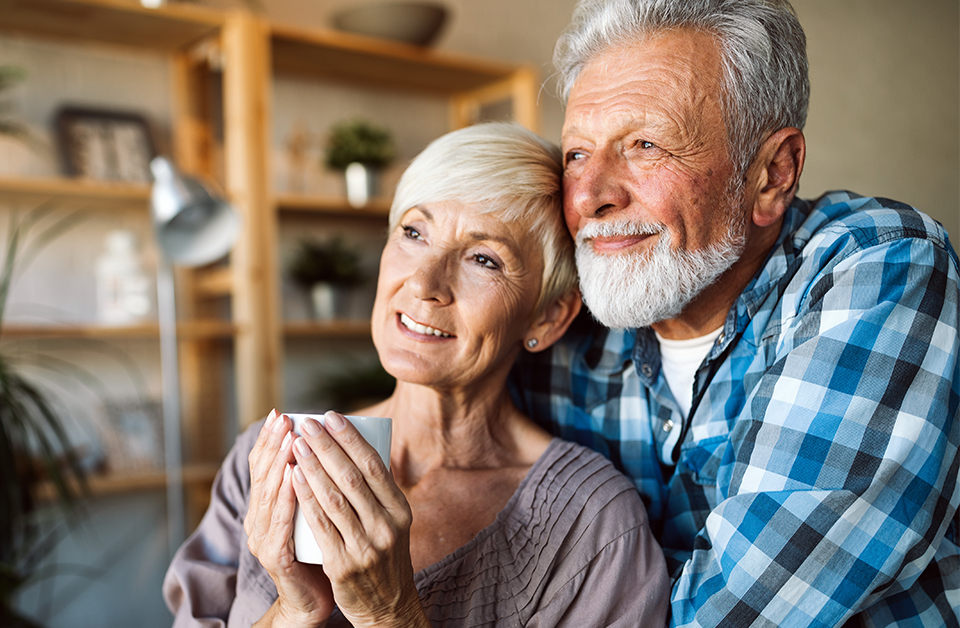Deborah Long has had an affinity for equines since she was a young girl in Iowa. When she got older, she cleaned stalls on several horse farms in exchange for board for her horse.
“He was a black Poco Badger quarter horse,” reminisces Deborah, 72. “I was his first rider when we broke him at 2 years old. I brought him with me when I moved to Florida in 2000, but I sold him after I had a hip replacement and couldn’t really ride him anymore.”
Mucking stalls wasn’t the only job Deborah held before she left Iowa.
“I worked at a clothing store for a while, and after that I worked at a family-owned baked goods distributor for 18 years,” she details. “After I moved to Florida, I worked at Publix® for 11 years, but I always liked working with horses the best.”
Deborah relocated to Florida primarily to care for her ailing mother. Since making the move, she’s come to appreciate the warm climate, but only during the fall, winter and spring. The summers, she laments, are a bit oppressive.
“I don’t really like the summers when they’re superhot and humid,” she admits. “Now that I’m older, I can’t handle the heat as well as I used to. But I like being in Florida because there are a lot of things to do here.”
Like many people in their 70s, Deborah recently developed cataracts, which are a clouding of the eye’s lens that develop naturally as a result of a breakdown of lens fibers or a clumping of eye proteins, or both.
Cataracts usually result in blurred vision, an increase in the eye’s sensitivity to light or a reduction in the vibrancy of colors, but they can be removed during an outpatient procedure in which the natural lens is replaced with an artificial one.
Deborah’s cataract surgeries were performed without incident several years ago, but afterward she noticed a new issue with her vision.


“I’ve always had floaters in my left eye, but after my surgery I saw floaters in my right eye as well,” she elaborates. “They were these little fuzzy spots that were always hovering around and getting in the way of my clear vision. It’s like there was something in my eyes stopping me from seeing straight ahead.
“Thankfully, the floaters didn’t bother me that much when I drove, and if I held my eyes straight without moving them around, I could usually see clearly. But they were very annoying when I tried to read the newspaper or anything else.”
Like Deborah, most people describe floaters as specks, threads, bubbles, squiggly lines, cobwebs or bugs hovering in their vision. Floaters typically are the result of proteins suspended in the vitreous, the gel-like fluid that fills the rear cavity of the eye. Over time, these specks can clump together and cast floating shadows on the retina that interfere with eyesight.
People who only have a few floaters that don’t change over time typically need no treatment. However, an eye specialist should immediately evaluate a sudden increase in floaters that comes with flashes of light, a loss of peripheral vision and eye pain, or an onset of floaters following eye surgery or trauma. They could signal a retinal tear or retinal detachment, which requires quick treatment to prevent vision loss.
Concerned about the sudden development of floaters, Deborah eventually returned to the ophthalmologist who performed the cataract surgeries. That physician referred her to Florida Retina Institute, where she met with Jaya B. Kumar, MD, a board-certified, fellowship-trained retina specialist.
High-Speed Suction
“When Ms. Long came to us, her floaters had been present for a long time and were starting to affect her daily activities, and she wanted to take action to eliminate them,” Dr. Kumar recalls.
Most of the time, floaters are harmless and go away within a few months. However, it is important to make sure there is no bleeding or inflammation in the eye, the doctor explains.
“Proteins are part of the vitreous,” Dr. Kumar educates. “The vitreous carries lots of nutrients to the back part of the eye that aid during development. As people get older, however, the vitreous consistency begins to change. It starts to liquify and separate from the retina, which lines the back of the eye.
“As it separates, the vitreous can sometimes tug or pull on the retina and cause a retinal tear or detachment. That is why it is so important that people with floaters have their eyes examined for tears, bleeding or breaks as the vitreous separates.”
Dr. Kumar reviewed treatment options with Deborah.
“Laser treatment was mentioned, but laser treatment doesn’t really eliminate floaters; it only moves them out of the way,” Dr. Kumar points out. “After discussing the risks and benefits, she decided to proceed with surgery to remove the floaters.
That procedure is called pars plana vitrectomy. It is performed through little ports in the eye, through which a tool called a vitrector cuts and sucks the vitreous out of the eye at high speed. As the vitreous is removed, the floaters come with it.
“Once the vitrectomy is completed, we place an air bubble into the eye cavity where the vitreous used to be,” Dr. Kumar continues. “This step is called a fluid-air exchange. Typically, within two to three days, the air bubble dissipates, and the patient’s vision clears up. The front part of the eye makes a fluid called aqueous, which replaces the fluid volume in the back of the eye.
“We ask patients undergoing this procedure to rest for a week afterward, then they can return to normal activities.”
Research Results
The specialists at Florida Retina Institute recently took a close look at the safety and efficacy of pars plana vitrectomy for the elimination of floaters. The group published its favorable findings last year.
“We found that, overall, vitrectomy is a very safe and successful procedure in the proper patient,” Dr. Kumar details. “Our research showed that the fewest complications and the best outcomes occurred in a specific subset of patients.
“Those patients not only had cataract surgery and received a replacement lens, but they had vitreous that naturally separated from the retina. In addition, their symptoms were present for at least six months, so we knew they were not getting better. Finally, they had no other abnormalities, such as bleeding or inflammation in the eye.


Jordan Pysz / ifoundmydoctor.com According to Deborah, the floaters are gone, and her vision is close to 20/20.
“The bottom line is vitrectomy may not be appropriate for every patient. In most cases, floaters get better within a few months. Surgery is reserved for people with persistent, thick opacities that do not improve over time.”
“They’re Completely Gone”
Deborah met all the criteria identified by the research, so she was an excellent candidate for the vitrectomy.
“The floaters are all gone now,” Deborah raves. “I don’t have to worry about them hovering in my vision, which is close to 20/20 as of my last appointment. There’re no floaters to get in the way when I drive, and I can read the newspaper with no problem.”
Her excitement extends to the doctor that performed her surgery.
“I really like Dr. Kumar,” Deborah raves. “She has a great personality.
She’s funny. She’s also very knowledgeable. She explained exactly what she was going to do. Dr. Kumar is a good doctor, and she did a good job with me. My surgery was 100 percent successful.”










